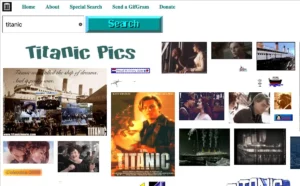
The Year Of AI And Tech Troubles: 2024’s Most Notable Failures
As the curtain closes on 2024, it’s essential to reflect on the significant technological failures that have left their mark on the industry. From AI-generated content gone awry to software updates causing widespread disruption, this year has seen its fair share of notable setbacks.
One of the most egregious examples is the recent software update failure from CrowdStrike, which resulted in a massive cancellation of flights for Delta Air Lines and led to a staggering $500 million lawsuit against the company. This incident highlights the devastating consequences that can arise from poor testing and validation processes.
The AI world has also seen its share of blunders this year. Apple’s generative AI features in iOS 18 were touted as revolutionary, but they have been plagued by errors since their rollout. A feature that summarizes news managed to grab headlines with an erroneous notification about a sensitive news story related to the former United Healthcare CEO. This incident is not isolated; the feature had previously failed in November, spreading false information about Israeli Prime Minister Benjamin Netanyahu.
These incidents raise significant concerns about the reliability and accuracy of AI-generated content. The lack of robust testing and validation processes has led to numerous instances where AI-powered chatbots have provided incorrect or made-up court cases, as seen in a recent incident involving Canadian lawyer Chong Ke.
The proliferation of AI-generated content, often referred to as “AI slop,” is another concerning trend. Research indicates that approximately 57% of online content is now AI-generated or processed through AI translation algorithms, significantly altering the way content is created and disseminated. This new form of content, often used to get clicks, raises concerns about accuracy, context, and ethics.
The issue of “AI slop” has been further exacerbated by its increasingly sophisticated nature, making it difficult for even the most discerning readers to distinguish between AI-generated and human-generated content. In fact, a staggering 65.8% of people believe AI content matches or exceeds average human writing quality.
As we move forward into 2025 and beyond, it’s imperative that the tech industry prioritizes reliability, accuracy, and inclusivity in the development of new technologies. This includes investing in diverse and representative training data, conducting rigorous testing and quality assurance, and being transparent about the limitations and potential biases of AI-generated content.
In conclusion, the past year has shown us that even the most innovative and promising technologies are not immune to failure. It’s crucial that we learn from these mistakes and work towards creating a more reliable, accurate, and inclusive tech landscape.
Source: www.forbes.com


